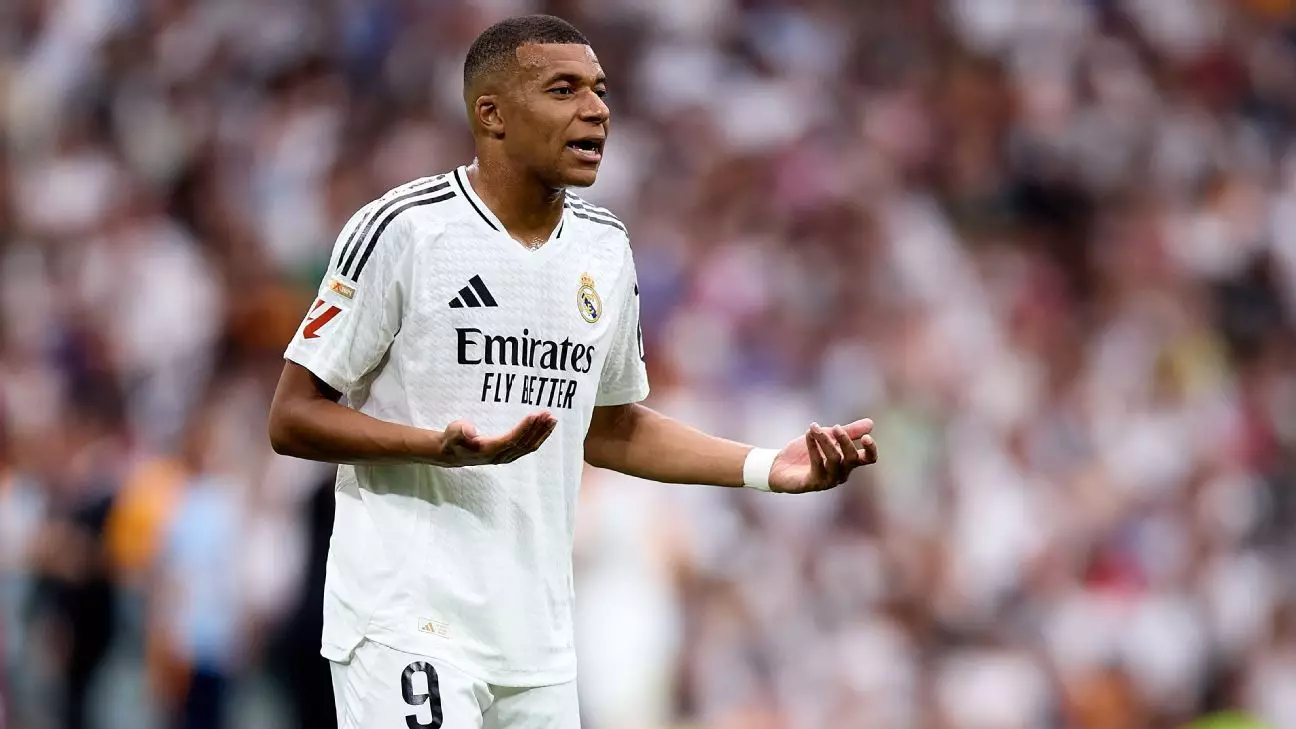The world of football often sees its players caught in the middle of conflicting commitments, and the recent incident involving French star Kylian Mbappé exemplifies this dilemma. With the national team facing off against Israel and Belgium, conversations surrounding Mbappé’s injury and subsequent club appearances have generated heated debates. After sustaining a thigh injury during Real Madrid’s LaLiga match against Alavés, which sidelined him for several weeks, questions arose about his commitment to the French national team, especially given his status as captain.
Coach Didier Deschamps and midfield prodigy Aurélien Tchouaméni have both publicly asserted that Real Madrid did not put pressure on Mbappé to prioritize club obligations over national duty. Deschamps, addressing the media ahead of France’s crucial matches, firmly declared that he alone made the decision to exclude Mbappé from the squad, insisting that the star forward’s physical condition warranted caution. The decision sparked intrigue: did club interests overshadow national responsibilities, particularly for a player of Mbappé’s caliber?
Deciphering the Lines of Communication
The exchange between the coach, player, and club suggests a layered communication dynamic, prompting discussions on the relationship between international football and club obligations. Deschamps acknowledged that he based his decision on the information available at the time, expressing concern over Mbappé’s fitness even when he made a brief return for Madrid against Villarreal. In a sport where players face immense pressure from clubs for performance and consistent availability, it becomes essential to understand the roles each party plays in these decisions.
In light of these circumstances, Tchouaméni’s observations shed light on the football fraternity’s inner workings. By confirming that there were no undue pressures from Real Madrid, he emphasizes the routine struggle players face when balancing their commitments. As the weight of expectation builds, Tchouaméni assumed the captaincy amidst criticism, showcasing his capability to lead while maintaining a positive attitude regarding his teammate’s situation.
Compounding the narrative surrounding Mbappé is the broader scrutiny placed on how players present themselves during international duty. The recent uproar over the fashion choices of French players, such as Ibrahima Konaté’s hooded arrival at Clairefontaine, illustrates how external perceptions can significantly affect a player’s image. Criticism from former players and media personalities reflects a desire for professionalism but also highlights the tension between personal expression and public expectation.
The response from players like Jules Koundé, who dismissed the criticism and defended their right to express themselves, underscores the generational shift in how athletes engage with media narratives. While fashion and self-presentation may seem trivial in the grand scheme of sports, they represent a larger conversation regarding athlete individuality in an environment that often prioritizes traditional values of professionalism.
The saga of Mbappé’s absence from the French squad serves as insightful commentary on the dual responsibilities pressed upon modern footballers. As clubs and national teams clamor for unparalleled performance, players must navigate their roles with dexterity and awareness. The interplay of personal health, public image, and media scrutiny demands a new level of professionalism from athletes that transcends traditional boundaries.
Ultimately, the episode highlights the necessity for clearer dialogue between players, coaches, and clubs. As global football evolves, maintaining an equilibrium between allegiance to club and country while fostering a supportive environment for athletes’ well-being and personal expression will be key. Footballers inspire millions, and their stories reveal complexities many fans are unaware of—complexities that continue to shape the ongoing narrative of the sport.

